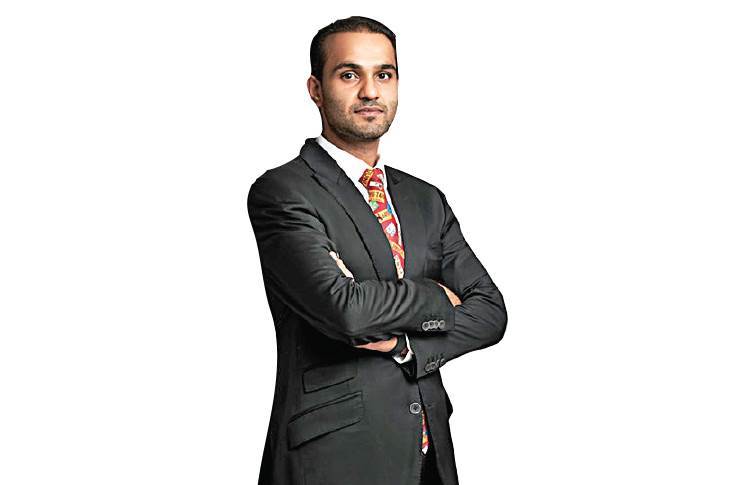It is believed that people in nearly 30% of the villages in India do not have enough water even for basic necessities like drinking and cooking. Yet, India is also a country where hundreds of millions of two-wheelers are washed by hosing them down using potable water, leading to the wastage of billions of litres of an increasingly precious resource.

It is this paradox that led 36-year-old Rushang Shah to set up BlueVerse India, a startup focused on drastically reducing the environmental impact when cleaning two-wheelers. The young entrepreneur estimates that the traditional method of washing two wheelers consumes no less than 50-100 litres of water per wash.
In comparison, Indus, the patented machine developed by Blueverse India for washing two-wheelers, cuts down the amount of water used to just 4 litres per wash and the time required to wash it to less than five minutes. “As per the 2021 Vahaan data, there are 21 crore two-wheelers in India,” says Shah. “If we assume these 21 crore two-wheelers are washed once a month, and 50 litres of potable water are used for each wash, then we are wasting 112 billion litres annually.” While 112 billion litres may just be a number for many, the fact is that it is enough to meet the drinking and cooking needs of the entire state of Rajasthan.
Unlike the traditional washing method where used oils and chemical residues are dumped, the Indus machine collects all such residue and is able to recycle 98% of the water, adding to the green quotient of the product. Meanwhile, the automated nature of the process reduces the amount of manpower required.
Coming back to the market, Shah found that while there was no dearth of machines for washing cars, the situation was very different for two-wheelers: “We realised there was no machine for two-wheelers, and the sustainability aspect was also missing.”
BlueVerse India claims to have washed over 36,400 vehicles, saved more than 6.1 million litres of water, and collected over 10.5 tonnes of hazardous waste, as of 20 May 2024. The automated vehicle wash utilises biodegradable chemicals in an enclosed unit. The machine captures a range of data related to the wash, including water consumption and waste collection. Hazardous waste is collected in the enclosed unit.
Within a year of its operations, its innovation has attracted companies like TVS Motor Company, which installed the machine at service centres in Surat, Bengaluru, and Delhi in 2023. Recently, the company installed its machines for Royal Enfield in Chandigarh. Shah said they are in talks with other companies, refusing to divulge names citing confidentiality agreements. Firms that have introduced the technology have benefited significantly, Shah claims, taking the example of a dealer in Bengaluru who used to order 30 water tankers every month. “Since installing our machines, his water consumption has reduced to just one tanker, costing Rs 650, from Rs 21,500 earlier,” he said.
The machine, which occupies less than 150 square feet of area, is installed at zero cost to the dealer and OEM customers and operates on a pay-per-wash model. Shah, however, did not disclose the pricing or cost details, merely adding that it is only slightly higher than that of a traditional water wash. Most of Blueverse India’s costs are around the setting up of the machine and training of the operators.
Besides the obvious benefits related to sustainability and lower costs, Shah says his company’s technology also helps keep OEMs in good standing with regulatory authorities. Automobile service stations are categorised as Orange Category by the Central Pollution Control Board, and strict adherence to handling and disposing of hazardous waste is mandated. Failure to comply can result in penalties and termination of permissions to operate service stations. But will all this come at the cost of jobs? Shah doesn’t think so. “40,000 machines will produce 60,000 jobs in the blue-collar market in five to seven years, and will be compliant with minimum wages,” he said, adding that Blueverse India is running a programme aligned with the Skill India Mission and the NSQF (National Skills Qualification Framework).
Expansion Plans
Meanwhile, the company is gearing up to scale operations across India in the B2B and the B2C sectors. It also wants to expand to ASEAN, LATAM and the African markets, where two-wheelers are more predominant. The startup aims to enter the Middle East market in the next 12 months, the ASEAN market in the next 24 months, and LATAM and African markets in the next 26 months. It plans to raise funds from institutional investors in 6-8 months.
